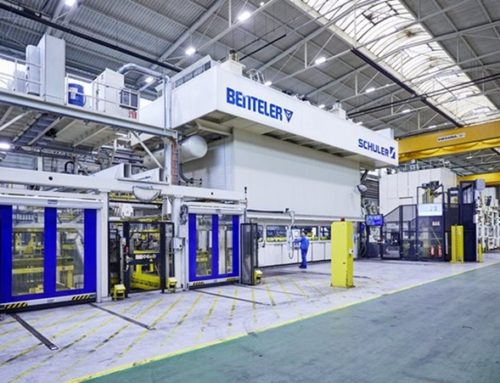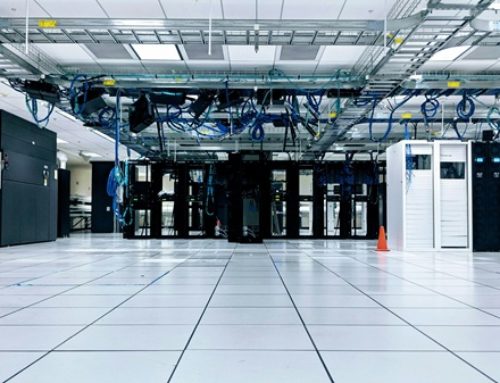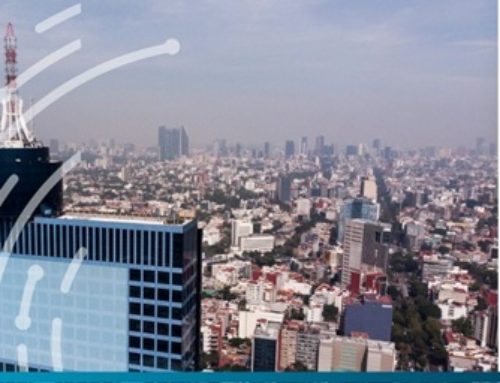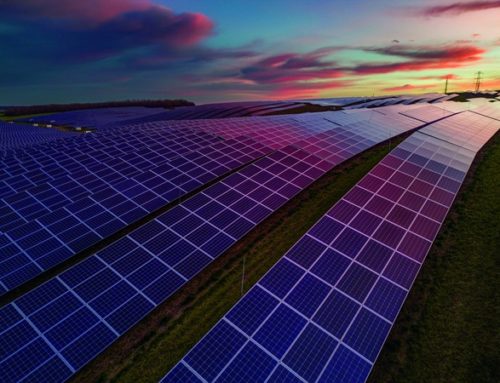-
Italian Solar First with RWE Energy Plant
In a significant stride towards a greener future, RWE, a world leader in renewables, has embarked on the construction of its first solar plant in Italy. The plant, named ‘Bosco’, is an 8.3 megawatt (MWac) ground-mounted solar facility. It is being installed in Partinico Municipality, located near Palermo in the picturesque region of Sicily.
What sets this project apart is the remarkably short time it took from the start of development to construction. Thanks to the implementation of a new accelerated permitting process in Italy, RWE was able to reach ‘Ready to Build’ status in less than 18 months. This achievement underscores RWE’s commitment to expanding its renewable energy footprint in Italy, one of its key markets.
Once operational, the Bosco solar plant will generate enough green electricity to supply the equivalent of 7,000 Italian homes. This marks a significant milestone in Italy’s journey towards sustainable energy and a cleaner environment.
Italy’s Renewable Energy Goals
The Bosco solar plant project by RWE aligns well with Italy’s renewable energy goals. Here’s how:
1. Carbon Neutrality by 2050:
Italy is committed to achieving carbon neutrality by 2050. The Bosco solar plant, by generating green electricity, contributes to this goal by reducing the reliance on fossil fuels.
2. Renewable Energy Targets for 2030:
Italy aims to reach 30% of renewables in total energy consumption and 55% of renewables in electricity generation by 2030. The Bosco solar plant, being a renewable energy source, directly contributes to these targets.
3. Reducing Dependence on Fossil Fuels:
Italy is committed to phasing out the dependence on Russian gas by 2025. The Bosco solar plant, by generating electricity from solar energy, helps in reducing the country’s dependence on imported fossil fuels.
4. Increasing Renewable Electricity Generation:
The National Energy and Climate Plan (NECP) of Italy sees wind power capacity reaching 19 GW in 2030. To achieve the more ambitious renewable electricity generation target set by the European Union’s Fit-for-55 (FF55) package, 5 GW of new renewable generation capacity must be added annually from 2020 to 2030. The Bosco solar plant contributes to this goal by adding to the country’s renewable generation capacity.
5. Eliminating Coal by 2025:
Italy plans to eliminate coal by 2025. The Bosco solar plant, by providing a clean energy alternative, supports this goal.
Other Italian Renewable Projects
Italy is making significant strides in renewable energy. Here are some of the ongoing projects:
1. Offshore Wind Farm:
Italy is about to complete the construction of its first offshore wind farm, the Beleolico wind turbine park, located just off the port in Taranto. When fully operational, the plant will consist of 10 turbines with a total capacity of 30 MW, able to produce over 58,000 MWh, equal to the annual energy needs of 60,000 people.
2. Onshore Wind Farms:
The government has recently approved the construction of six new onshore wind farms, from Sardinia to Basilicata. These parks will be developed in the central and southern regions of Puglia, Basilica, and Sardinia. These six wind farms are in addition to two already cleared by the government earlier this year, which have a capacity of 65.5 MW.
These projects align with Italy’s commitment to triple its installed renewable energy capacity by 2030 and phase out coal-fired power plants in the first half of the next decade. They also contribute to Italy’s goal of ending its reliance on Russian gas by 2025.
However, it’s important to note that Italy’s complex approval process has historically slowed down the rollout of green energy projects. Despite these challenges, Italy continues to push forward in its pursuit of a more sustainable and secure energy future.
-
Microsoft Invests $1.7 Billion in Indonesia: A Leap Forward for Cloud and AI Technologies

Jeremy Bishop via Unsplash
In a groundbreaking move that underscores the growing importance of the Southeast Asian digital economy, Microsoft has announced a staggering investment of $1.7 billion in Indonesia’s cloud and AI market. This strategic investment not only marks a significant milestone in Microsoft’s expansion in the region, but also promises to catalyze a new era of technological innovation and digital transformation in Indonesia. The infusion of capital is expected to bolster the development of cutting-edge cloud and AI technologies, fostering a vibrant ecosystem of startups, businesses, and government agencies that are poised to redefine the digital landscape of Indonesia.
Implications for Indonesia
Microsoft’s massive investment of $1.7 billion in Indonesia’s cloud and AI market is expected to have far-reaching implications for the country’s tech industry:
1. Boost to Digital Infrastructure:
The investment will significantly enhance Indonesia’s digital infrastructure, with Microsoft planning to establish new cloud and AI infrastructure in the country.
2. Job Creation:
Microsoft’s investment is projected to generate up to USD $6.3 billion in new revenues from the country’s ecosystem of local customers and partners, and contribute 60,000 jobs to the local economy over the next four years.
3. Skilling Initiatives:
Microsoft is rolling out a wide range of AI training and skilling initiatives aimed at equipping 840,000 Indonesians with AI expertise in the coming years. This will help develop an AI-fluent workforce that can capitalize on the economic opportunities AI promises.
4. Support for Developers:
Microsoft is also focusing on enabling Indonesia’s booming community of developers and software engineers. Over 3.1 million developers in the country use GitHub, Microsoft’s code collaboration platform.
5. Economic Growth:
The investment aligns with the Indonesian government’s Golden Indonesia 2045 Vision, which aims to transform the nation into a global economic powerhouse. It’s expected to open up new horizons for Indonesia, positioning it not only as a consumer of technology but also as a pivotal contributor to the global technological supply chain.
6. Ethical AI Practices:
As AI capabilities expand, Microsoft is partnering with the Indonesian government, academics, and industry groups to ensure AI adheres to ethical principles around privacy, security, transparency and other responsible AI practices.
This strategic move by Microsoft underscores the company’s commitment to empowering individuals and organizations in Indonesia to thrive in the AI era. It represents a significant step towards making Indonesia a hub for digital talent and innovation.
-
IBM’s Canadian Expansion: A Game Changer for Global Semiconductor Industry

John Lee via Unsplash
In a significant move that underscores the growing importance of the semiconductor industry, IBM has announced a major expansion of its semiconductor packaging and testing plant in Canada. The tech giant plans to invest more than C$1 billion ($730 million) over the next five years, bolstering its operations at the 800-acre site in Bromont, Quebec.
This investment is not just about expanding a facility; it’s about strengthening an industry. The Bromont plant, one of North America’s largest chip assembly and testing facilities, plays a crucial role in transforming advanced semiconductor components into state-of-the-art microelectronic solutions. With this expansion, IBM aims to further develop the assembly, testing, and packaging (ATP) capabilities for semiconductor modules used across a wide range of applications.
The move comes at a time when the global semiconductor supply chain is under intense scrutiny, and efforts are being made worldwide to reduce reliance on East Asia, which accounts for 75% of the global semiconductor production. This expansion by IBM is a significant step towards creating a more balanced semiconductor ecosystem in North America.
Stay tuned as we delve deeper into what this expansion means for IBM, Canada, and the global semiconductor industry.
IBM Impact
IBM’s $730 million investment in its Canadian semiconductor packaging and testing plant is a significant move with far-reaching implications for its global operations.
1. On-shoring Strategy:
This expansion is a part of IBM’s on-shoring strategy to bring operations closer to home. It will enable the transformation of chips into microelectronic components to occur onshore, reducing the current dependence on offshore packaging services, particularly from Taiwan.
2. Strengthening Supply Chain:
The expansion will strengthen IBM’s supply chain by increasing the capacity for semiconductor packaging. This is crucial as there’s very little semiconductor packaging capacity on the continent, and most of it is at the Bromont facility.
3. Workforce Development:
The expansion will create 280 skilled jobs in the initial phase. This will not only boost local employment but also develop a skilled workforce that can contribute to IBM’s global operations.
4. Research and Development:
The first stage of the expansion includes building a research and development lab. This will foster innovation and potentially lead to the development of advanced technologies that can be leveraged across IBM’s global operations.
5. Integration with U.S. Manufacturing Base:
The expansion will integrate IBM’s Canadian operations more with its U.S. manufacturing base. This could lead to more efficient operations and better coordination between the two sites.
In summary, this expansion is expected to enhance IBM’s operational efficiency, strengthen its supply chain, foster innovation, and contribute to workforce development, thereby positively impacting its global operations.
-
Rockwell Automation in India: Pioneering Advanced Manufacturing Technologies

Tiago Rosado via Unsplash
In the ever-evolving landscape of automation and manufacturing, one company stands at the forefront, consistently pushing the boundaries of what’s possible – Rockwell Automation. This article shines a spotlight on Rockwell Automation’s latest venture, a state-of-the-art manufacturing facility in India. This new facility not only marks a significant expansion of Rockwell’s global footprint, but it also represents a bold commitment to harnessing the potential of India’s robust manufacturing sector. Join us as we delve into the details of this exciting development, exploring its implications for the future of automation, manufacturing, and the dynamic synergy between technology and industry in India.
Technology
While the specific technologies to be used in Rockwell Automation’s new manufacturing facility in India have not been explicitly mentioned in the sources I found, it’s clear that the facility will be a state-of-the-art installation. Rockwell Automation, being a global leader in industrial automation and digital transformation, is known for leveraging advanced technologies to optimize manufacturing processes.
The new facility, located in Chennai, is designed to help Rockwell build a more resilient, agile, and sustainable supply chain in the Asia Pacific region and around the globe. It will be situated in the same industrial park as Rockwell’s CUBIC manufacturing facility, which suggests the possibility of synergies between the two facilities.
Given Rockwell Automation’s commitment to digital transformation, we can anticipate the use of technologies such as IoT (Internet of Things), AI (Artificial Intelligence), machine learning, and advanced robotics in the new facility. These technologies are commonly used in modern manufacturing facilities to improve efficiency, reduce waste, and increase production speed.
Rockwell Automation is expected to share more details as the facility’s expected opening in the first half of 2025 approaches.
Capacity
The new Rockwell Automation manufacturing facility in Chennai, India, is expected to employ about 230 workers by the end of the year it opens. The facility, which is 98,000-square-foot in size and has space for potential expansion, is expected to open in the first half of 2025. This indicates a significant capacity for manufacturing operations. However, the specific production capacity in terms of units produced or services provided has not been explicitly mentioned in the available sources. For the most accurate information, I would recommend reaching out to Rockwell Automation directly or keeping an eye on their official announcements. They are expected to share more details as the facility’s opening approaches.
-
A New Era of Trade: The NZ-EU Free Trade Agreement Comes into Force

Tobias Keller via Unsplash
In a significant milestone for international trade, the Free Trade Agreement (FTA) between New Zealand and the European Union (EU) officially comes into effect today. This landmark agreement, which was signed in Brussels on July 9, 2023, marks the end of a four-year trade drought since Vietnam’s agreement in 2020.
The hard-won FTA is expected to save New Zealand exporters a hundred million dollars a year in tariffs, with duties removed on 91 percent of New Zealand’s goods exports to the EU. This figure is set to rise to 97 percent after seven years. The agreement is ambitious and presents immediate gains for sectors such as horticulture, including kiwifruit, apples, and onions.
Despite the challenges and concerns, both sides are committed to their implementation of the Paris Agreement. This FTA not only signifies a win-win situation for both parties but also serves as a blueprint for future FTAs. As we delve into the details of this agreement, we will explore the potential impact and opportunities it presents for businesses in New Zealand and the EU.
Key Provisions
The key provisions of the Free Trade Agreement (FTA) between New Zealand and the European Union are as follows:
1. Tariff Elimination:
From the first day the FTA enters into force, most New Zealand goods entering the EU will have their tariffs eliminated entirely. For some goods like meat and dairy, tariffs will remain but there will be an increase in quota volume, with reduced in-quota tariff rates. Quotas will also increase over time.
2. Economic Impact:
Economic modelling suggests that by 2035 the NZ-EU FTA could increase exports to the EU by up to $1.8 billion per year and generate an extra $1.4 billion to New Zealand’s GDP per year.
3. Rules of Origin:
Rules of Origin (ROO) allow New Zealand exporters to be able to claim New Zealand tariff preferences under an FTA. These determine origin based on a product being wholly obtained or meeting a proportional requirement to be considered ‘a New Zealand product’, either on the basis of value added, a change in tariff classification requirement or a specified process.
4. Small and Medium Enterprises (SMEs):
The FTA establishes a dedicated chapter on SMEs to promote their exports.
5. Compliance Requirements:
The FTA simplifies compliance requirements and procedures to allow for quicker flow of goods.
6. Intellectual Property Rights:
The FTA includes significant commitments by New Zealand to protect and enforce intellectual property rights, aligned with EU standards.
These provisions are expected to provide new opportunities for businesses by eliminating all tariffs on EU exports to New Zealand, opening the New Zealand services market in key sectors, ensuring non-discriminatory treatment to EU investors in New Zealand and vice versa, and improving access for EU companies to New Zealand government procurement contracts.
-
UK Trade Mission to Riyadh

In an era where global partnerships are reshaping the economic landscape, the recent trade mission to Riyadh stands as a testament to this transformative trend. This mission, attracting an unprecedented number of major corporate sponsors, has not only underscored the growing interest in Saudi Arabia’s burgeoning market, but also highlighted the potential of such collaborations in fostering mutual growth and prosperity. This article delves into the intricacies of this trade mission, exploring the key players, the strategic alliances formed, and the potential impact on the global trade dynamics.
The trade mission to Riyadh, known as the GREAT FUTURES event, is a significant initiative that has attracted major corporate sponsors. Here are some key details about the mission:
Date and Location:
The event is scheduled to take place in Riyadh on the 14th and 15th of May, 2024.
Delegation:
The Deputy Prime Minister will lead a delegation of over 300 business representatives to the event.
Lead Partners:
British Airways and HSBC have been announced as the lead partners for the event.
Purpose:
The event is part of a 12-month campaign to highlight UK expertise and capability in sectors that support Saudi Arabia’s ‘Vision 2030’. It aims to foster partnerships across various sectors by bringing together some of the UK’s most creative and innovative companies with their Saudi business and Government counterparts.
Key Partners:
Other key partners of the event include North Highland, TAG, Innovo, Bechtel, Howden, and Global University Systems.
Cultural Exchange:
The event also serves as a platform for cultural exchange, fostering dialogue and understanding between diverse cultures.
This event is expected to be an important stage for forging enduring partnerships for the future with Saudi business and government counterparts. It’s an opportunity for UK businesses to take advantage of one of the fastest-growing markets in the world.
How can businesses participate?
Businesses interested in participating in the GREAT FUTURES event in Riyadh can follow these steps:
1. Register Interest:
Businesses can register their interest in the GREAT FUTURES event on the official website.
2. Participation Opportunities:
There are opportunities to participate not only as delegates but also as speakers, exhibitors, and sponsors. This presents a chance to showcase the very best of what your business has to offer.
3. Event Details:
The event is scheduled to take place in Riyadh on the 14th and 15th of May, 2024. It aims to bring together some of the UK’s most creative and innovative companies with their Saudi business and Government counterparts.
4. Travel Arrangements:
British Airways, a lead partner on the event, will be providing a specially designated delegate charter flight for prominent political and corporate delegates.
Remember, this event is an excellent opportunity to build greater collaboration between the UK and Saudi Arabia, and to take advantage of one of the fastest-growing markets in the world. It’s a chance to experience Saudi Arabia for yourself and lay out your capabilities to the full.







